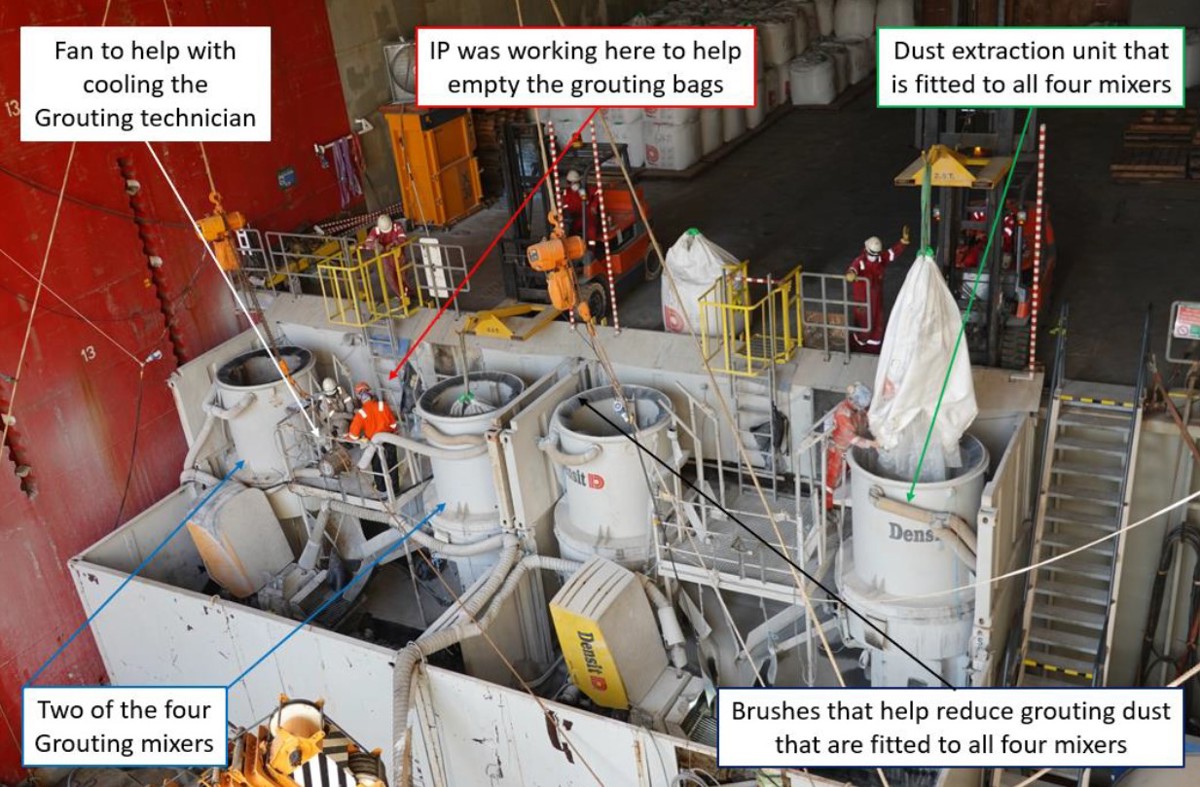Chemical reaction: person injured during grouting operations
- Safety Flash
- Published on 20 January 2022
- Generated on 11 February 2026
- IMCA SF 02/22
- 2 minute read
Jump to:
One member of the team received first degree burns to his two knees and left calf during cleaning.
What happened?
After completion of the grouting operation for an offshore wind farm transition piece, the sub-contract grouting team began cleaning their equipment using high pressure water jets. During this cleaning operation, one member of the team received first degree burns to his two knees and left calf. The team member suffered burns in three places and minor irritation spots elsewhere. The burns were treatable on board and had completely healed after three weeks.

Grouting plant on vessel
What went wrong?
The investigation discovered that the person who was affected, had grouting dust on his coveralls when he started working with the water jet. Whilst he was using the water jet he got soaked to the skin with the water, and this water mixed with the grouting dust to make a corrosive solution which burnt his skin.
What was the cause?
Our member considers that the root cause of this unfortunate incident was that the Safety Data Sheet for the grout lacked any information regarding the hazard of the grout dust mixing with water and becoming corrosive. This lack of hazard identification resulted in no risk mitigation measures being introduced to the risk assessment.
Related Safety Flashes
-
IMCA SF 15/21
2 June 2021
-
-
IMCA SF 20/21
22 July 2021
-
IMCA SF 19/19
12 August 2019
-
IMCA Safety Flashes summarise key safety matters and incidents, allowing lessons to be more easily learnt for the benefit of the entire offshore industry.
The effectiveness of the IMCA Safety Flash system depends on the industry sharing information and so avoiding repeat incidents. Incidents are classified according to IOGP's Life Saving Rules.
All information is anonymised or sanitised, as appropriate, and warnings for graphic content included where possible.
IMCA makes every effort to ensure both the accuracy and reliability of the information shared, but is not be liable for any guidance and/or recommendation and/or statement herein contained.
The information contained in this document does not fulfil or replace any individual's or Member's legal, regulatory or other duties or obligations in respect of their operations. Individuals and Members remain solely responsible for the safe, lawful and proper conduct of their operations.
Share your safety incidents with IMCA online. Sign-up to receive Safety Flashes straight to your email.